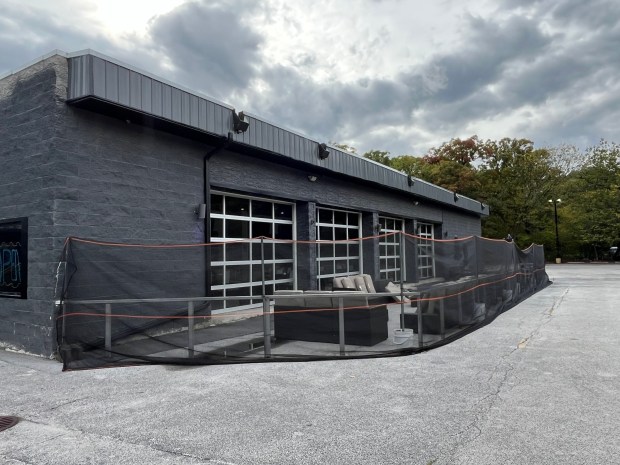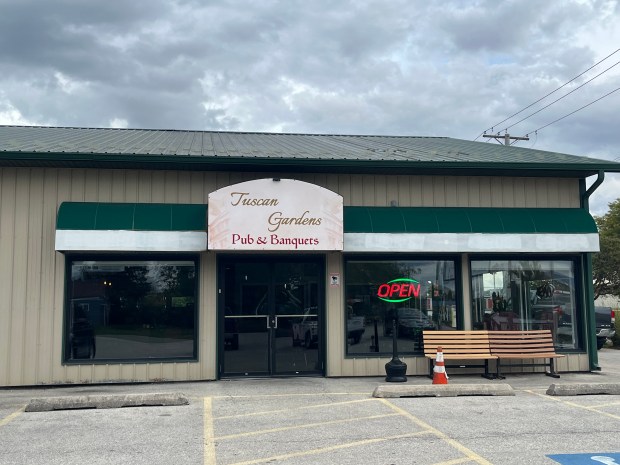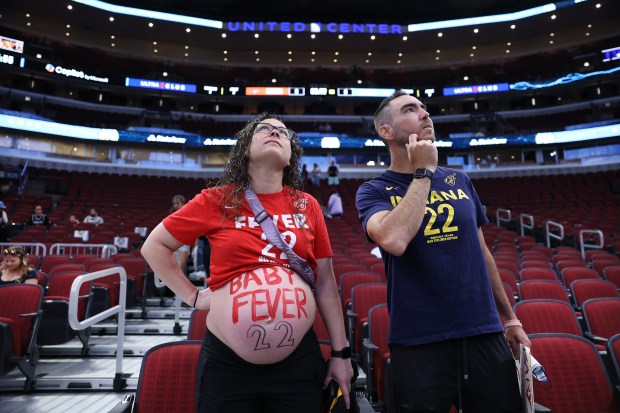Two multifunction restaurants and banquet halls in Glenwood that received pandemic loans to build outdoor patios to stay afloat are behind on their payments, prompting village officials to send letters asking them to pay up, said Glenwood fire Chief Kevin Welsh.
The village notified the owners of Glenwood Oaks and Tuscan Gardens about upcoming payment deadlines and potential interest charges on their respective loans, $300,000 and $253,000, in letters sent Oct. 2.
Glenwood Oaks owner Murad Hussain was informed he must immediately pay the full remaining balance of his loan due to missed payments since April 15, 2023, according to the acceleration notice shared with the Daily Southtown. If he fails to do so, under the loan agreement, the village can impose a 5% interest rate for each year the amount remains unpaid.
“The demand wasn’t so much that you have 30 days or we’re coming with the padlock,” Welsh said. “The demand was, listen, you got 30 days, if you don’t pay it in full then we’re going to start tacking on the interest.”
The village notified Tuscan Gardens owner Robert Opilka that his year-long payment moratorium will expire in November, with payments resuming on Dec. 16. Failure to make the December payment and those thereafter will incur a 7% annual interest on each missed payment, according the letter.
Glenwood Oaks, a traditional American steak and seafood restaurant, has been a fixture at the corner of Main Street and Chicago Heights-Glenwood Road since 1974. Known for its old-school charm, the venue also functions as a banquet hall. Since its acquisition by new owners just before the pandemic, the business began to struggle, prompting Hussain to ask the village for a loan, Welsh said.
Tuscan Gardens, a pub and banquet hall on Holbrook Road operating under Opilka since 2020, faced a similar problem.
Opilka said Tuesday he wants make payments, but doesn’t have the funds. When his payments resume, he said he hopes the village will continue to work with him while he tries to keep his business afloat.
He said he invested his retirement and inheritance into the restaurant, which has struggled to stay afloat since opening. Compounded with a property tax bill of $55,000 a year and high prices for food and supplies, Opilka said he works a second job to afford payroll for the employees he has left.
“I don’t know if I’ll be above water tomorrow. The economy is just killing me,” Opilka said. “During the week I have nobody in here. There’s no lunch crowd. I’m still paying a cook, still paying a bartender. I do all the cleaning myself. It’s ridiculous that this place isn’t growing. I mean, it’s massive, it’s beautiful, it’s clean, it’s new.”
Hussain did not return calls Tuesday and his voicemail box was full.
Welsh, who is also the Building Department director and oversees economic development agreements, said Monday the businesses were granted loans from two tax increment financing districts to construct outdoor patios. While the village received about $1 million in pandemic aid, Welsh said officials decided to save the funds for emergency services, granting the businesses loans through the TIF districts.
Both businesses defaulted on their original agreements, which included no-interest loans and a provision for 50% loan forgiveness if the projects were completed within a specified timeframe. While this means those funds would not be returned to the TIF district, Welsh said the long-term financial benefits of supporting these businesses would have outweighed the costs.
Welsh said if the businesses adhered to terms outlined in the loan agreements, they would have only needed to make payments every other month, ultimately totaling half of the loan amount.
Because of the way the village uses TIF dollars, Welsh said loans are not simply given outright. In both cases, he said, the loans were structured to reimburse contractors directly or to reimburse the owners for payments made to contractors.
Opilka said he was not aware of this caveat when he signed the agreement for a project he believes would have cost him nearly $2 million, substantially more than the loan amount.
“I put everything in my life into this business,” he said. “I didn’t realize when I took that money from the TIF money that you have to spend it to get reimbursed.”
While Glenwood Oaks completed the project and began making payments on the loan, Welsh said Tuscan Gardens never completed its patio and voluntarily withdrew from further funding in August 2022.

Glenwood Oaks received a $300,000 loan with a provision for 50% forgiveness if the project was completed by December 2021, and if payments were made on time over three years. However, according to the acceleration notice sent to Hussain, he only borrowed $221,000 from the village.
Tuscan Gardens was approved a loan up to $400,000, but after withdrawing from funding only saw about $253,000. Like Glenwood Oaks, the business was granted 50% loan forgiveness if it completed the project by December 2022.
According to the loan repayment schedule for Glenwood Oaks, which was taken out of the Main Street TIF, the business owed 42 payments of $7,143 on the 15th of every month. The repayment schedule began July 15, 2022 and was set to finish in 2025. For Tuscan Gardens, the loan was taken out of the Industrial TIF, which expires in 2027, and was supposed to be repaid by Feb. 1, 2023, officials said.
Of the roughly $221,000 loan, Glenwood Oaks repaid $42,857 with about $179,000 remaining, and Tuscan Gardens paid $21,466 of the $253,000 with about $232,000 remaining, officials said.
Municipalities use TIFs to generate development, such as in commercial areas where vacant storefronts have multiplied, or on parcels of vacant land. Property tax revenues for all government bodies in the district are frozen, and communities use any increase in property tax revenue, the increment, to find improvements.
Welsh said he does not agree with the village’s decision to force the businesses to pay up. As a small business owner himself, he understands both perspectives. Because the businesses already forfeited their right to have half of their loans forgiven, he believes there is no urgent need for them to pay now, especially as many businesses are still recovering from forced closures during the pandemic.
“I don’t think swinging the giant hammer is the right decision for the village, because what are we going to do by swinging that big hammer? We’re going to put a business out. We’re going to take a building and let it go dark, and he’s going to release all his employees. That’s just not good,” Welsh said. “No municipality can afford to have any property shut down.”
Welsh said both owners, Hussain and Opilka, signed personal guarantees as part of the redevelopment agreement. This means the owners accept the personal responsibility of taking on the debt if the business is unable to generate enough revenue to repay it.
“You do not get out of those,” Welsh said. “They’ll take you to court.”
In the event the owners are forced to sell, Welsh said the village will still recoup the TIF dollars from the proceeds of the sale.
Opilka said he no longer has a home, and despite his desire to repay the loan, he lacks the financial means to do so.
“I’m trying every day, but literally, I live here, I wake up, I go to work, and all I do is crawl out of bed in the back room and go out here and start doing stuff,” he said. “So as far as the village goes, they know I’ve been trying.”
smoilanen@chicagotribune.com





